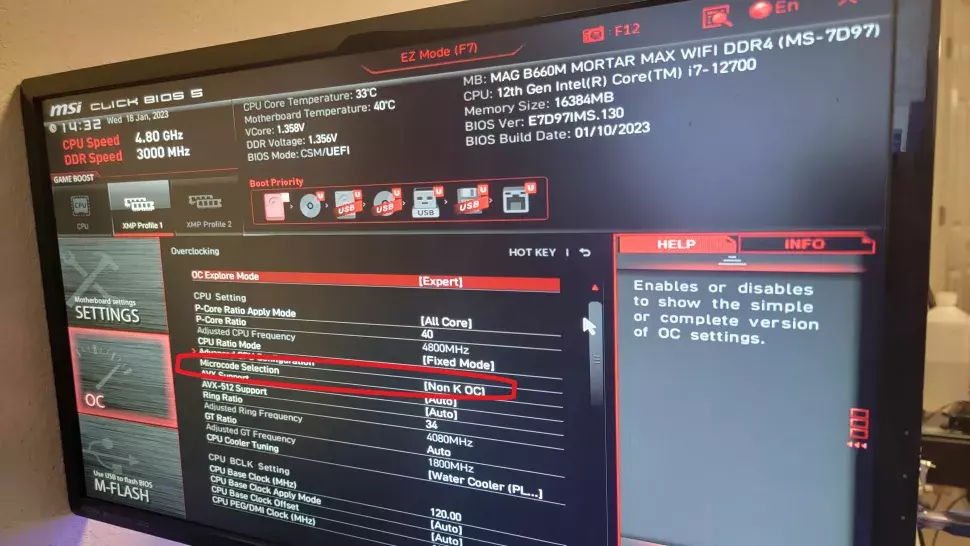
Intel’s 13th generation Raptor Lake CPUs that do not fall into the K-series are no longer overclockable via BCLK manipulation, unlike previous Alder Lake generations. Tom’s Hardware discovered that this option has been disabled in the uefi and bios.
It concerns the non-K models of Intel’s modern thirteenth generation CPUs, the Raptor Lake series. Tom’s Hardware discovered that the hack that enabled overclocking on the earlier Alder Lake generation no longer works on the new CPUs.
Officially, it was also not the intention that non-K models of Alder Lake SoCs could be overclocked , but that was possible in a roundabout way. Intel previously released a microcode patch that allowed motherboard manufacturers to adjust the Base Clock Speed, or BCLK, setting. That function was later removed from the official release of the microcode, but some motherboard manufacturers such as MSI and Asus made the function available in the bios or uefi by implementing the old microcode.
That detour is with thirteenth generation chips omitted, writes Tom’s Hardware. The same B660 motherboards that allowed overclocking on the twelfth generation no longer have that feature. It disappears when an i7-13700 is installed on the motherboard. Intel already warned with the earlier option that the chip’s warranty would expire if users overclocked their CPU anyway. Other forms of overclocking, such as optimizing the ‘tau’, are still possible. This allows a CPU to run at turbo clock speed for a longer period of time than intended.











